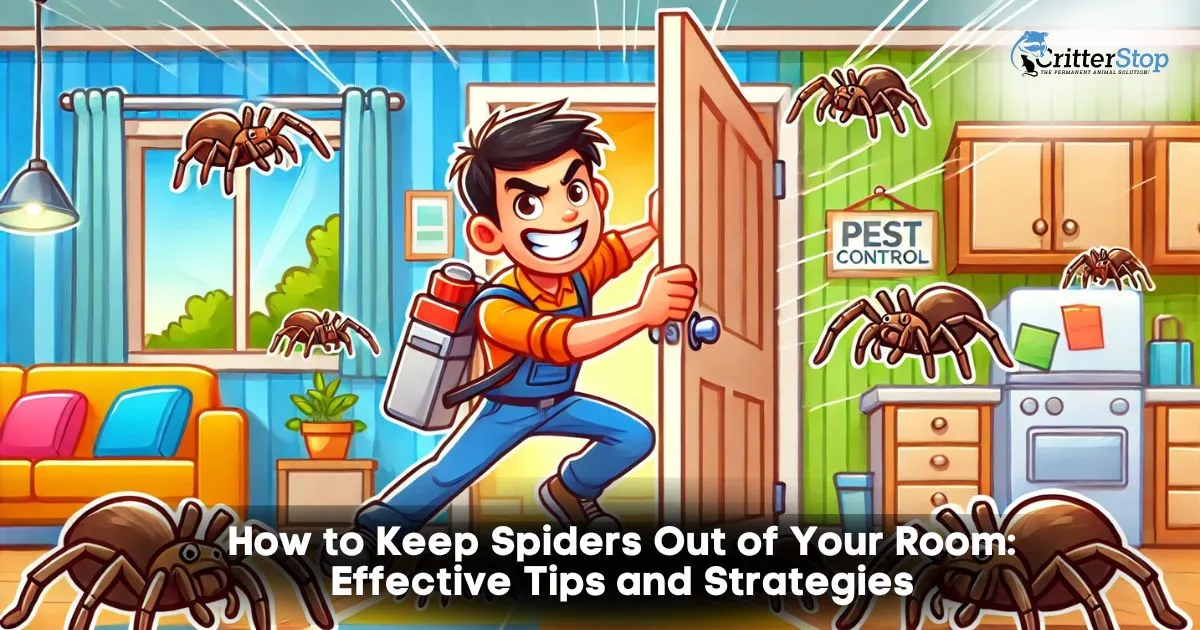
Spiders can be unwelcome guests in any home, and many people seek effective methods to maintain a spider-free environment. Keeping spiders out of your room involves regular cleaning, sealing entry points, and using natural deterrents. By implementing simple strategies, you can create a secure and comfortable space.
Regular dusting and vacuuming eliminate spider webs and eggs, reducing their chances of setting up residence. Additionally, tightly sealed windows and doors will prevent these creatures from finding their way inside. Natural repellents like peppermint oil can also be a barrier, keeping spiders at bay without relying on harsh chemicals.
Taking proactive steps is key to minimizing spider encounters. With a little effort in maintenance and prevention, anyone can enjoy a room free from these eight-legged intruders.
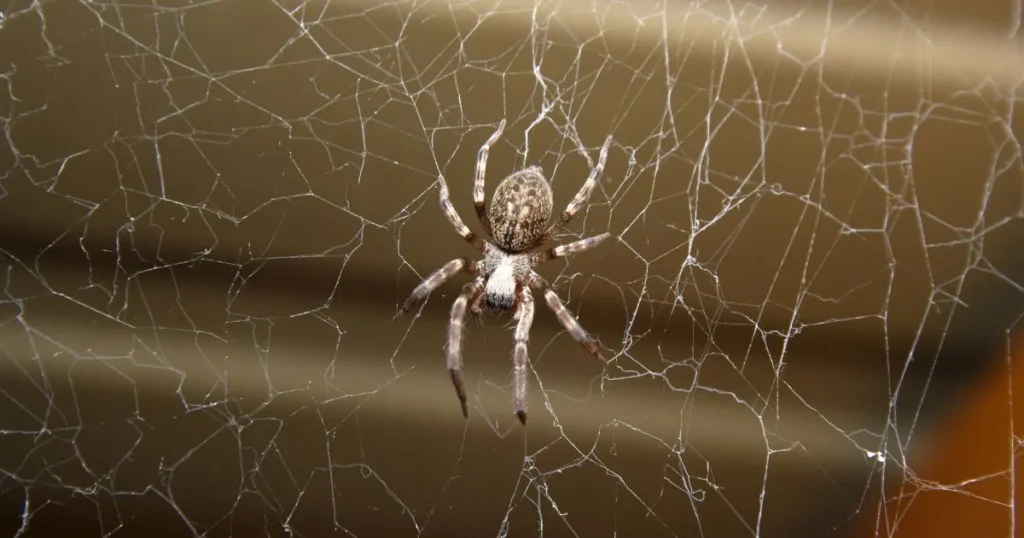
Spiders have specific behaviors and preferences that influence how they enter rooms and where they build their webs. Recognizing these patterns can help individuals take effective measures to keep spiders out of the bedroom and prevent them from becoming a nuisance.
Spiders often enter rooms through various pathways. Common entry points include:
Ensuring all windows and doors close tightly and sealing gaps can significantly reduce the likelihood of spiders entering. Regular inspections of the home’s exterior for these vulnerabilities can play a critical role in maintaining a spider-free environment.
Spider activity can vary with the seasons. Understanding these patterns is essential for effective prevention strategies.
To prevent spiders in a room, homeowners should be proactive in sealing entrances and reducing clutter, which offers spiders potential hiding places. Regular cleaning can also deter spider habitation, especially during peak seasons.
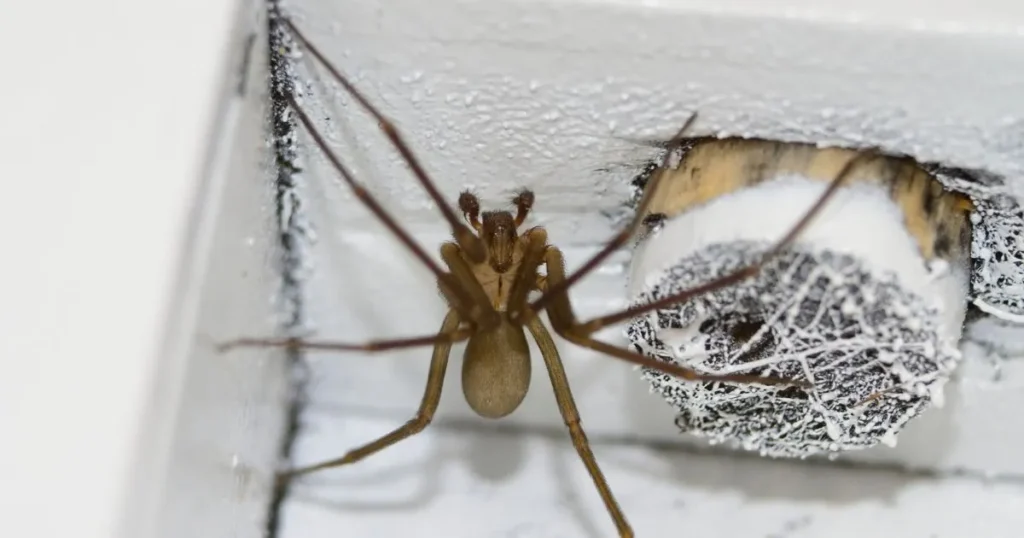
Implementing effective preventive measures can significantly reduce the likelihood of spiders entering a bedroom. These methods include maintaining cleanliness, sealing off potential entry points, and using natural deterrents.
Establishing a consistent cleaning routine is vital in preventing spiders in the bedroom. Dusting surfaces and vacuuming floors help remove spider webs, eggs, and potential food sources like insects. Pay close attention to corners, under beds, and behind furniture where debris accumulates.
Using a vacuum with a hose attachment can efficiently reach tight spaces. Also, washing bed linens and curtains regularly is important to eliminate hiding spots. Decluttering the room reduces the number of places where spiders can reside, making it less attractive.
Inspecting the bedroom for cracks and openings prevents spiders from entering. Gaps around windows, doors, and electrical outlets can serve as entry points. Use caulk or weather stripping to seal these areas effectively.
Additionally, check and repair any screens on windows and doors. Ensure they fit snugly without tears. Consider using door sweeps to close gaps at the bottom of exterior doors, deterring invading spiders.
Utilizing natural deterrents can help keep spiders at bay without harmful chemicals. Essential oils such as peppermint, tea tree, and lavender are known to repel spiders. Mixing a few drops of these oils with water in a spray bottle can create an effective repellent.
Spray this mixture around windows, doorways, and other entry points. Additionally, placing diatomaceous earth around the perimeter of the bedroom can deter spiders and other insects. It dehydrates pests that come into contact with it, reducing the chance of spider infestation.
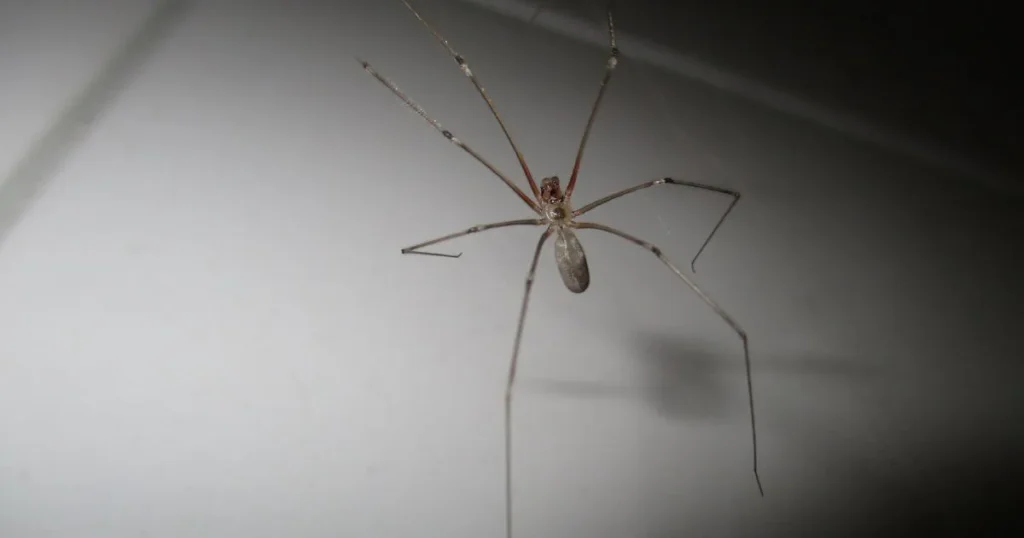
Creating a spider-free sleeping environment is essential for restful nights. Effective strategies include positioning the bed to minimize spider access and employing protective canopies as barriers.
Positioning the bed strategically can significantly reduce the likelihood of spiders making their way onto the sleeping surface. Keep the bed several inches from the wall and furniture for optimal results. This distance prevents spiders from easily climbing onto the bed from nearby surfaces.
Additionally, avoiding overcrowded areas around the bed minimizes potential hiding spots. Regularly inspect and declutter the space beneath the bed, as spiders often seek shelter in dark, undisturbed places. Placing the bed on its legs can further elevate it, reducing the chances of encountering spiders.
A protective canopy can be an effective barrier, keeping spiders from the bed while sleeping. Canopies also prevent spiders from descending from ceilings or walls. Lightweight materials are ideal for ease of use and maintenance.
For added effectiveness, consider using canopies that are treated with insect-repelling substances. These substances can deter spiders and other pests without harming humans. When choosing a canopy, ensure it adequately fits the bed and does not have gaps, which spiders could exploit to enter.
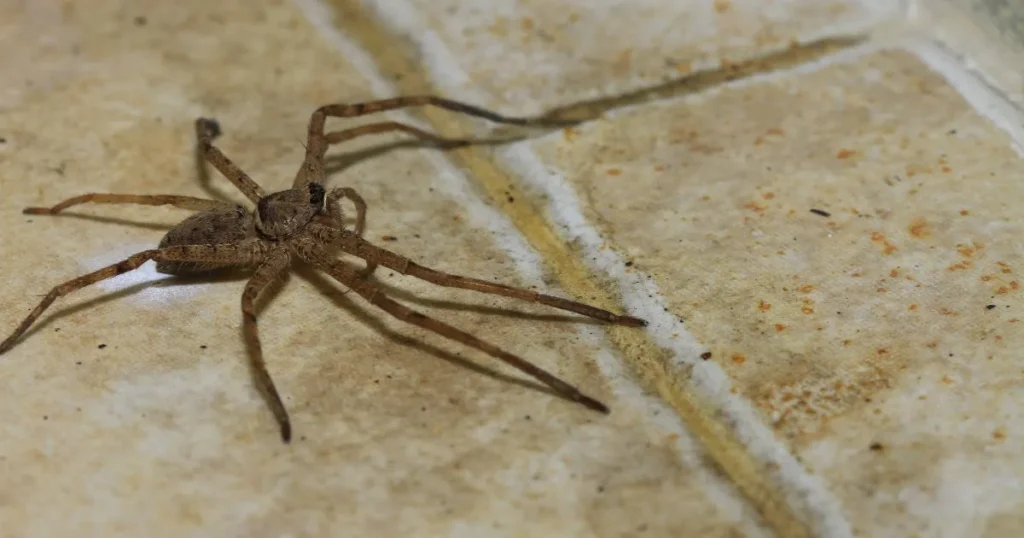
Maintaining a spider-free environment requires consistent landscape management and professional pest control efforts. These methods enhance the overall effectiveness of keeping spiders out of the room.
Proper landscape management can significantly reduce the likelihood of spiders entering the home. This includes keeping yards tidy and well-maintained. Regularly trimming shrubs and plants prevents them from becoming hiding places.
Creating distance between vegetation and the home is also essential. A minimum of 3 feet between plants and exterior walls reduces access points. Removing debris such as leaves, woodpiles, and stones also limits spider habitats nearby.
Using ornamental bark or gravel instead of mulch around the foundation can deter spider activity. Proper drainage is also useful to eliminate standing water, a natural attractor for insects that spiders prey on.
Engaging professional pest control services can provide a systematic approach to spider management. These experienced technicians assess the property and identify potential entry points. They apply targeted treatments to reduce spider populations effectively.
Regular inspections are key. Professionals can monitor conditions in and around the home that might encourage spider presence. They often use integrated pest management strategies, combining chemical treatments with environmental modifications.
In addition, hiring services that offer preventive treatments can be beneficial. This may include barrier sprays around the foundation and areas prone to spider activity, further minimizing risks. Regular follow-ups ensure continued effectiveness in keeping spiders out of the room.
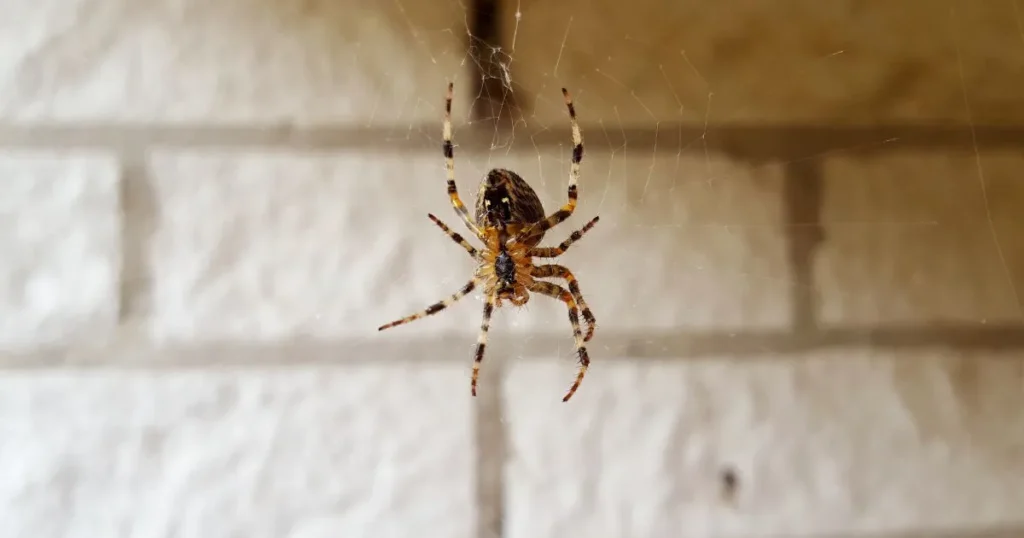
Maintaining a spider-free environment requires consistent monitoring and effective response strategies. Regular inspections and prompt action are crucial in keeping spiders at bay, especially while sleeping.
Conducting regular inspections helps identify potential spider entry points. These might include cracks around windows, door gaps, and wall openings.
Inspect areas such as:
Using a flashlight can help you spot these hidden areas. If you find signs of spiders or webs, immediate cleaning is essential. Keeping the room clutter-free minimizes hiding spots, making it less inviting.
Consider implementing a schedule for inspections, ideally weekly, to ensure a consistent approach. Professional help from Critter Stop can provide effective solutions for more severe infestations. Critter Stop has a fantastic reputation and customer reviews online because it allows for high-quality work and excellent customer service.
When spiders are spotted, swift actions are necessary. Start by removing webs and spiders with a vacuum cleaner or a broom. This immediate response can significantly reduce the spider population.
Evaluate and seal any identified entry points.
Use these preventive measures:
If the problem persists, consult Critter Stop. Their expertise ensures an effective and humane approach to wildlife removal. Call (214) 234-2616 for a free inspection to address any issues with spiders or other pests on your property.

This section addresses common inquiries about keeping spiders out of a room and offers practical solutions for a spider-free environment. Readers can find specific strategies and tips for various situations.
Sealing cracks and gaps is essential to keeping spiders out of a room. Regular cleaning and decluttering can remove spider webs and potential hiding spots. Essential oils like peppermint can also deter them.
To keep spiders away while sleeping, it is advisable to close windows and use screens. Ensuring bedding and surrounding areas are clean and debris-free can reduce spiders' presence. Employing lavender sachets may also help repel spiders.
The most effective way to keep spiders away from the bed is to vacuum the area regularly. Bed bug encasements can also help create a barrier. Keeping bedding off the floor can limit access points.
Natural remedies for keeping spiders out of bed include using water and vinegar. Spraying this around the bed and nearby areas can deter spiders. Essential oils like tea tree or citrus oils also work as natural repellents.
Preventing spiders in the bedroom starts with reducing clutter and avoiding piles of clothes. Regular dusting and vacuuming help eliminate webs and eggs. Installing tight-fitting screens on windows can keep spiders outside.
To keep spiders out of bed without chemicals, maintain cleanliness by vacuuming regularly. Using natural deterrents, such as citrus peels, can also help. Keeping bedding off the floor and checking for spider presence before sleeping is effective.
Strategies to keep spiders away from the bed include using sticky traps around the bedroom. Ensuring adequate lighting in the evening can also deter them. Regularly inspecting and cleaning the area also contributes to reducing spider interest.
Keeping spiders out of a bedroom effectively involves cleaning, sealing entry points, and natural repellents. Consistent maintenance, such as fixing cracks and using spider traps, can significantly reduce their presence.
Best practices for preventing spiders in a room include maintaining a clutter-free environment and sealing gaps. Regular cleaning, especially in corners and under furniture, minimizes web formation. Using natural deterrents can also be beneficial.
Safe methods to keep spiders off the bed include essential oils and natural repellents. Regular vacuuming and cleanliness are vital in minimizing their presence. Bed covers can create a physical barrier against them.
Visit our Critter Library and learn more about our furry friends